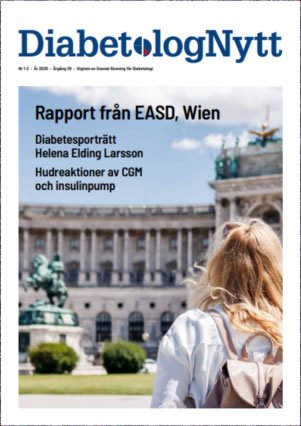|
Action Points
|
- This study was published as an abstract and presented at a conference. These data and conclusions should be considered to be preliminary until published in a peer-reviewed journal.
- A protocol that provides extra clinic visits for type 2 diabetes patients initiating insulin treatment appears to reduce glycated hemoglobin A1c (HbA1c) more effectively that standard treatment.
- Note that in addition to decreases in HbA1c, diastolic blood pressure in the treatment group showed a mean drop at 3 months by 4 mmHg.
A protocol that provides extra office visits for type 2 diabetes patients starting on insulin appears to reduce glycated hemoglobin A1c (HbA1c) more effectively than standard treatment, researchers said here.
The 51 patients in the treatment group, who had eight scheduled visits over half a year, saw a drop in HbA1c of 1.7% at 3 months and 2% at 6 months (P<0.001 for both), Florencia Ziemke, MD, from St. Elizabeth's Medical Center in Boston, and colleagues reported at the annual meeting of the American Association of Clinical Endocrinologists.
In comparison, the standard treatment group saw a decrease in HbA1c of just 0.14% at 3 months (P=0.23) and 0.17 at 6 months (P=0.23).
Pharmacological management of type 2 diabetes generally starts with lifestyle modification and oral agents in order to achieve and maintain HbA1C levels of 6.5% to 7%, the authors wrote. However, the majority of patients require insulin therapy over the long term.
”Our study shows that intensifying patient education by increasing clinical encounters improves glycemic control as compared to the standard treatment,” the authors wrote. ”These results suggest that standardizing early intense insulin initiation protocols could optimize HbA1c, prevent short-term complications, minimize chronic hyperglycemia, weight gain, and ultimately reduce long-term morbidity and mortality.”
In the program, which was developed at St. Elizabeth’s, patients are initially prescribed insulin by the endocrinologist in the clinic using a weigh-based protocol of 0.5 units/kg/day. ”Then patients are sent on to our diabetes center with our nurse educator weekly for titration,” explained co-author Ann Sweeney, MD.
The patients see the nurse practitioner at week 5 and week 8 for evaluation or further adjustment of dosing. They see the endocrinologist at week 12 during the 3-month intensified period.
For this retrospective review, included patients were adults with type 2 diabetes who were not on insulin and had been diagnosed with the disease for more than 3 months. The HbA1c level had to be greater than 8% and the body mass index (BMI) had to be greater than 30 kg/m2. They were randomized to the intensive treatment arm or to the standard treatment arm.
In addition to decreases in HbA1c, diastolic blood pressure in the treatment group showed a mean drop at 3 months by 4 mmHg (P=0.03). The standard treatment group had a mean drop of systolic blood pressure by 5 mmHg (P=0.48).
No significant changes in body weight, hypoglycemic episodes, or lipid panel were seen in either group.
There were five hypoglycemic events in the treatment arm versus seven in the standard care arm.
Sweeney noted that the study was limited by being retrospective, but that an important take-home message is that it’s feasible to establish such a clinic protocol, and that extensive education of patients does made a difference in outcomes.
Harmeet Narula, MD, told MedPage Today that he agreed with the authors that ”for patients going on insulin therapy, early and aggressive intensive education goes a long way in improving outcomes and keeping blood glucose levels under control.”
”This is a short-term study and it would be interesting to see how long this intensive education program shows effectiveness,” said Narula, who is from the VA Medical Center in North Las Vegas. ”The thinking is that if you get to these patients early with education on their disease, [the education] will stick with them.”
Sweeney, Ziemke, and Narula reported no conflicts of interest.
American Association of Clinical Endocrinologists
Alsheikh S, et al ”Effectiveness of an insulin initiation protocol for type 2 diabetes mellitus” AACE 2013; Abstract 200.
From Medpgaetoday.com
Nyhetsinfo
www red DiabetologNytt

